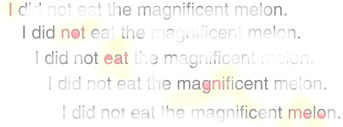

 |
Greg Kochanski |  |
The Chronicle of Higher Education has this story (15 Aug 2007):
NSF Grant-Application Success Rate Has Declined, but Number of Proposals Has Not, Report Says
By JEFFREY BRAINARD
Arlington, Va.
Scientists face a much tougher time landing research grants from the National Science Foundation than in the past, partly because more scientists are applying for a limited pot of money. However, neither the number of scientists awarded grants nor the quality...
All I can say is "Of Course!" People need grants to pay their summer salary and to get tenure. They need grants to pay for their postdocs and students. Any sensible professor will do whatever is necessary to get them. That will presumably include spending less time on teaching and research (since most scientists are already working hard enough that they can't usefully increase their working hours).
The people who write these grant proposals aren't dumb, so when given a choice between cutting a few not-very-visible corners or losing their summer-time salary, most can probably figure out the economically sensible thing to do.
Actually, the system of incentives is even stronger than that. To get future grants, one needs a good research reputation. To get that, you need publications; to get publications you need post-docs and graduate students. (Why the need for post-docs and graduate students? Because the professor is too busy writing grants, of course.) So, people know that you can't afford to stumble: if you go for a year without funding, you'll have a gap. When your next grant proposals go in, the reviewers might think you've been slacking off or otherwise unsuitable for funding. Miss one step, and there's a risk you might become unemployed or spend the rest of your career teaching "Physics for Poets."
Everyone knows this, so they keep a sharp eye on the fraction of proposals that get accepted. If the acceptance rate is 20%, you write five proposals. If it goes down to 10%, you know you need to write ten proposals. Each proposal is a project, involving man-weeks of work, and those extra man-weeks come from somewhere.
What the NSF should be looking at is the change in quality of teaching and actual research, not the change in quality of the grant proposals. Unfortunately, such things are much harder to measure: Teaching doesn't conveniently come in printable form. Research takes years from start to published paper, so if people start paying it less attention, it won't be obvious for three years or more. People tend to ignore side-effects that are hard to measure.
Overall, that report is about as surprising as one running like this: ...despite the increase in shoe prices, everyone continues to wear shoes... or perhaps this one: ...gasoline prices double but demand only edges down... In each case, there's a strong system of incentives to make sure that you wear shoes and drive to work. So, no surprise there. No surprise about the research grants either.
| [ Papers | kochanski.org | Phonetics Lab | Oxford ] | Last Modified Mon Aug 11 05:37:10 2008 | Greg Kochanski: [ Home ] |